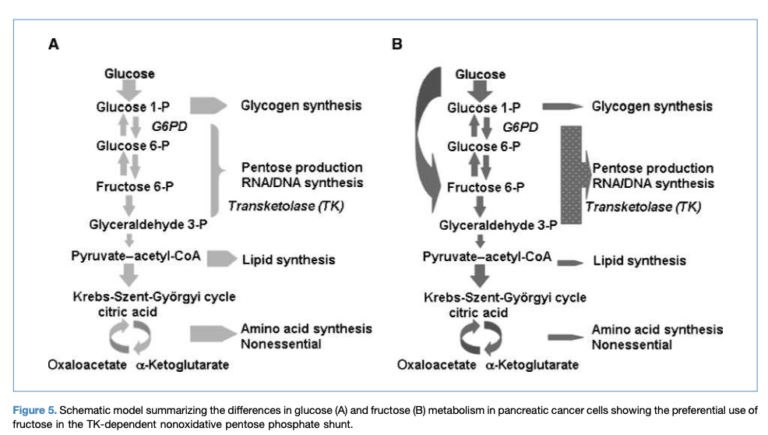This 2010 basic research study investigated differences between fructose and glucose metabolism in pancreatic cancer cells. Researchers found fructose upregulates pathways that significantly increase production of nucleic acids — the building blocks of DNA and RNA. While glucose generates more energy (ATP) per molecule than fructose in these pancreatic cancer cells, fructose increases activation of the pentose phosphate pathway and transketolase, both of which support nucleic acid production.

This observation is notable in the context of previous research suggesting cancer growth is primarily restrained not by a lack of energy but a lack of the “cellular building blocks” needed to build the DNA, RNA, and proteins in a new cell. These same fructose-favored pathways may also mitigate cellular oxidation, ameliorating a key cancer cell vulnerability. Researchers note fructose metabolism is not regulated as tightly by the body as glucose metabolism. Thus, fructose levels in the blood remain elevated longer after fructose ingestion than do glucose levels after glucose ingestion — in other words, consumption of fructose elevates cancer cells’ exposure to fructose over longer periods. Previous evidence has shown that pancreatic cancer patients have blood fructose levels 2.5-times higher than healthy controls (1), and sugar-sweetened beverage consumption is an independent risk factor for cancer (2). This study builds on this evidence by proposing the mechanism by which fructose may preferentially favor cancer cell growth and replication to a greater degree than glucose.
Fructose Induces Transketolase Flux to Promote Pancreatic Cancer Growth